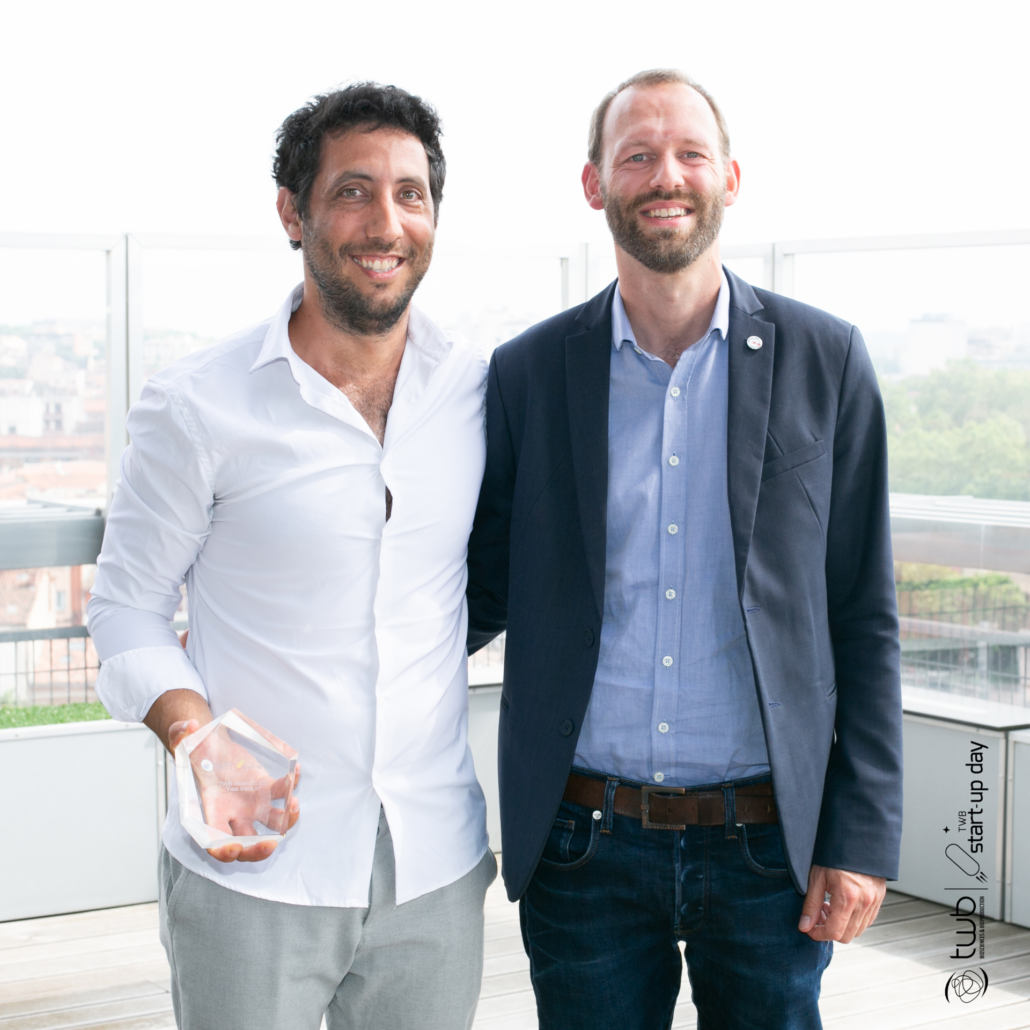
TWB announces winners in industrial biotech start-up contest
At the end of the TWB Start-up day, which was attended by more than 200 biotech professionals, two industrial biotechnology companies were awarded prizes worth €50,000.
Hosted for the fifth time by Toulouse White Biotechnology, the TWB Start-up Day showcased what industrial biotechnology can already do today to mitigate the effects of global warming and replace fossil resource-based production methods with sustainable cell-based and microbial processes. Under the noticeably increasing pressure of climate change, readily available and novel decarbonisation technologies in various sectors attracted the attention of over 200 investors, CEOs and scientists at the meeting. Israeli company Ambrosia Bio and French start-up Dionymer won the "Fast track it!" pitch competition and the "Go for it! " competition among 10 start-up companies.
In the "Fast track it!" competition, Ambrosia Bio beat four international start-ups in the development phase – Denmark’s Cellugy, Switzerland’s Cultivated Biosciences, Austria’s MyBIOS and Italy’s REWOW. Ambrosia Bio CEO Ziv Zwighaft pointed out the negative impact of industrial sugar on human health and emphasised that "sugar is the new tobacco". The company’s enzyme technology platform makes it possible to develop acid-stable enzymes that efficiently convert high glycaemic index sugars such as fructose in juices into rare, low-calorie sugars such as allulose, tagatose or allose, without compromising taste – a solution desperately sought by juice producers whose sales have plummeted by almost 40% in the last 15 years. Ambrosia Bio received 50 000 euros for services related to TWB’s technology platforms and the communication facilities offered by Bioeconomy For Change & Agri Sud-Ouest Innovation.
In the "Go for it!" competition for younger start-up companies, the French company Dionymer was successful with a process that converts grape waste into biodegradable bioplastics such as polyhydroxyalcanoates (PHA). "Au revoir petrol" is the company’s motto. It wants to contribute to decarbonization. Dionymer’s polyesters can replace petroleum-based compounds in a variety of applications.Other speakers presented the latest trends in renewable and sustainable carbon value chains, alternative leather, cellular meat, new materials, health-promoting food additives, etc., produced by cell-free enzymatic, microbial or cell-based processes in fermenters."Consumers want to be sustainable," said Rasmus von Gottberg, Genomatica’s chief growth officer, who currently sees a second wave of growth coming for industrial biotech solutions. "In our sector, we cannot drive our business alone, we need partners to finance our technologies," he stressed. A few weeks earlier, the U.S. company, which develops plant-based drop-in solutions to replace unsustainable production processes for everyday products, signed a $120 million deal with Unilever to produce sustainable alternatives to palm and coconut oil.Lessafre’s Dr. Jonna Koper says fermentation of dextran prebiotics by lactic acid bacteria could be another area of industrial biotechnology success in an area of medically underserved chronic diseases ranging from depression, inflammatory bowel disease and diabetes to neuroendocrine axis disorders and chronic fatigue. The company has developed a model called SHIME that simulates the gut microbiome and links diseases to specific enterotypes with reduced Bacteroides content. Dextran as a prebiotic performed better than inulin in restoring a healthy gut microbiome and could offer a solution to many lifestyle diseases."Collaboration between startups, researchers, investors and manufacturers is critical," said Olivier Rolland, executive director at TWB.
One day before TWB’s start-up day, TWB thus provided the opportunity for networking between start-ups, scientists and business experts from TWB, major industrial groups, technology companies and investorson occasion of a visit to the premises of TWB and CRITT Bio-Industries. The event was supported by the Occitanie Region and Toulouse Metropole, and received the support of Adisseo, Biotalys, Carbios, BU INRAE Transfert, Kerry, L’Oréal, Michelin, Sofinnova Partners, Sparkalis, Syngulon and TBS.
The very next international event "Industria Biotec" that will showcase how synthetic biology and industrial biotech can ameliorate climate change and solve environmental problems that arose from industrial production and globalisation by biotech solutions will take place on 7th October in Berlin.



 adobe.stock.com - ipopba
adobe.stock.com - ipopba BioDlink
BioDlink